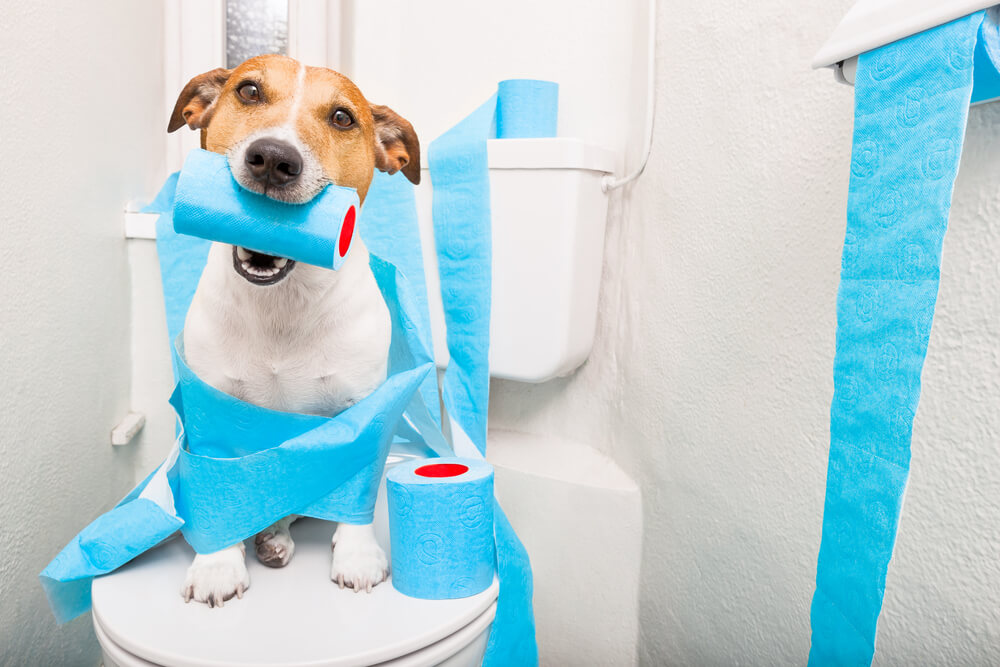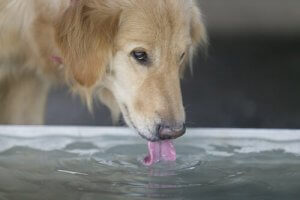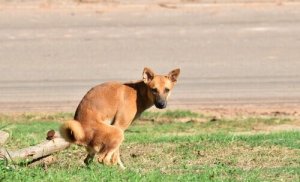Pet Care - How to Stop Diarrhea in Dogs

Although all dogs will suffer from diarrhea at some point in their lives, it can still be worrying. As such, it’s hardly surprising that pet owners often look for a way to stop diarrhea in dogs at home.
If your dog is regularly producing abnormal feces, vets consider it to be chronic diarrhea. In this case, you’ll need to consult with your vet to determine and treat the underlying cause.
Immediate care for a dog with acute diarrhea
- It’s very important to consult with your vet for treatment and advice if your dog is very young, very old, or has a pre-existing health condition
- Very young or very old dogs can become weaker extremely quickly, even if the diarrhea is relatively mild
- You should also consult a vet if your dog’s diarrhea is very frequent or watery, if it contains several traces of blood, or if it’s very dark and sticky
- You should also seek veterinary treatment if the diarrhea is accompanied by frequent vomiting, the dog becomes lethargic, depressed, or appears to be in pain. All of these symptoms could be a sign of a more serious health condition.
If your pet is an otherwise healthy adult dog, it’s worth trying to treat the problem at home before seeking veterinary treatment.

Home treatment to stop diarrhea in dogs
Mild diarrhea in an otherwise healthy, adult dog with no other symptoms can be treated in the following way:
- Make sure your dog has access to plenty of fresh, clean water to ensure it doesn’t get dehydrated. Encourage your dog to drink. If necessary, you could also offer your pet a bowl of diluted chicken or beef soup, making sure it’s low in sodium. You could also add a dose of Pedialyte to the water.
- If your dog experiences vomiting as well as diarrhea, it may be best to take away all food for 8-12 hours.
- Offer them a soft diet. Give your dog a small portion of boiled chicken – making sure to remove the bones and skin – and white rice. You could also give them sweet potato or squash instead of rice. In fact, squash and sweet potato can be added to their regular diet to increase their intake of fiber. Maintain this diet until the consistency of the stools returns to normal. If your dog is allergic to chicken, you can replace it with another hypoallergenic source of protein.
If your dog’s condition improves, continue giving them this soft diet for 1-3 days, gradually increasing the amount of food with each meal.
However, if the diarrhea persists for more than 24 hours, or your dog’s condition worsens at any point, call your vet immediately.
You can also increase the amount of time between meals until the consistency returns to normal. It’s important to be aware that the transition back to a normal diet needs to be a gradual one, in order to avoid further gastrointestinal issues.

Preventative measures against the recurrence of diarrhea
Once they’re able to eat normally again, putting them on a soft diet will prevent the recurrence of diarrhea.
In addition to the traditional dish of rice and protein, bone broth is another soft and nutritious option. It provides a mixture of vitamins and nutrients, but is easily digestible. You could also supplement this diet with probiotics and prebiotics to re-balance the gut flora.
How to stop diarrhea in dogs
Here are a few ways you can reduce the appearance of diarrhea in dogs:
- Don’t change their diet suddenly
- Don’t feed your dog leftovers or let them raid the trash
- Finally, always keep an up-to-date record of when they were last vaccinated and treated for parasites
All cited sources were thoroughly reviewed by our team to ensure their quality, reliability, currency, and validity. The bibliography of this article was considered reliable and of academic or scientific accuracy.
- Jiménez Romero, C. A. (2017). Vómitos y diarreas en perros canis domesticus sus causas consecuencias e importancia de su control. Universidad Técnica de Machala. Ecuador. http://repositorio.utmachala.edu.ec/bitstream/48000/10524/1/DE00001_EXAMENCOMPLEXIVO.pdf
- Huamancayo, F., & Chávez, A. (2015). Giardiasis en perros menores de tres años que concurren a los parques públicos del distrito de Santiago de Surco en Lima Metropolitana. Revista de Investigaciones Veterinarias del Perú, 26(2), 296-302.
